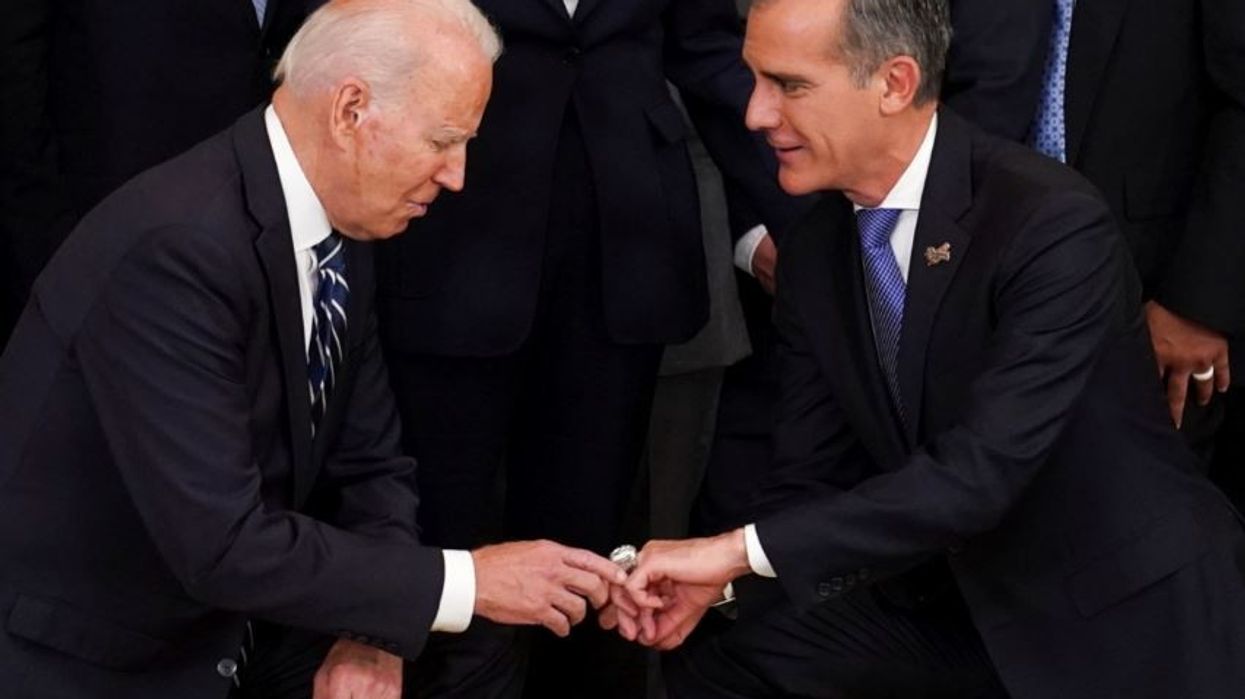US President Joe Biden on Friday nominated Los Angeles Mayor Eric Garcetti, an ambitious star in his Democratic Party, to be ambassador to India, with which the US has an increasingly close relationship.
Garcetti, who has led the country's second-largest city since 2013 with a focus on improving transportation and sustainability, declined to run for president last year but has been widely seen as seeking to burnish his credentials with a new job.
A Rhodes scholar who spent 12 years as an intelligence officer in the US Navy Reserves and plays jazz piano on the side, Garcetti said in a statement that he had "committed my life to service."
“Today, the President announced that I am his nominee to serve as US Ambassador to India. I am honoured to accept his nomination to serve in this role," Garcetti said.
"And should I be confirmed, I'll bring this same energy, commitment and love for this city to my new role and will forge partnerships and connections that will help Los Angeles."
If confirmed by the Democratic-run Senate, which appears likely, the 50-year-old Garcetti would take up an ambassadorship with a storied history.
Previous tenants of Roosevelt House, as the official residence in New Delhi is known, include the celebrated economist John Kenneth Galbraith and the policy intellectual Daniel Moynihan, who went on to become a senator.
Garcetti would head to New Delhi at a time that the US is seeking to flesh out a burgeoning relationship with India in the face of an increasingly assertive China, the only other nation of a billion-plus people.
Biden has stepped up the "Quad" partnership of the US, India, Japan and Australia -- four democracies that largely share common cause on China's rising military and economic might.
But Garcetti, the first Jewish mayor of Los Angeles, would also head to India amid growing concern in the US, especially among Democrats, over the treatment of minorities under Prime Minister Narendra Modi's Hindu nationalist government.
Biden as a candidate voiced disappointment over a citizenship law pushed by Modi that critics say would disenfranchise Muslims; and the State Department last year voiced rare, if muted, criticism of India over a sweeping crackdown in Muslim-majority Kashmir.
Many achievements
As Mayor, Garcetti oversees the busiest container port in the Western Hemisphere, the largest municipal utility in the US, and one of the busiest airports in the world.
He led the city's successful bid to return the summer Olympic Games to American soil for the first time in three decades.
He currently chairs LA Metro, the country's second-busiest transit agency, which is building or extending 15 new transit lines, and shifting to an all-electric fleet.
Garcetti co-founded Climate Mayors and led more than 400 US mayors to adopt the Paris Climate agreement.
He is the current Chair of C40 Cities – a network of 97 of the world's biggest cities taking bold climate action and has led the organisation's engagement and expansion in India as well.
He studied at Queen's College, Oxford and the London School of Economics and Political Science. Garcetti was selected as an inaugural Asia 21 Fellow of the Asia Society and taught at Occidental College's Department of Diplomacy and World Affairs, as well as at the University of Southern California's School of International Relations.





